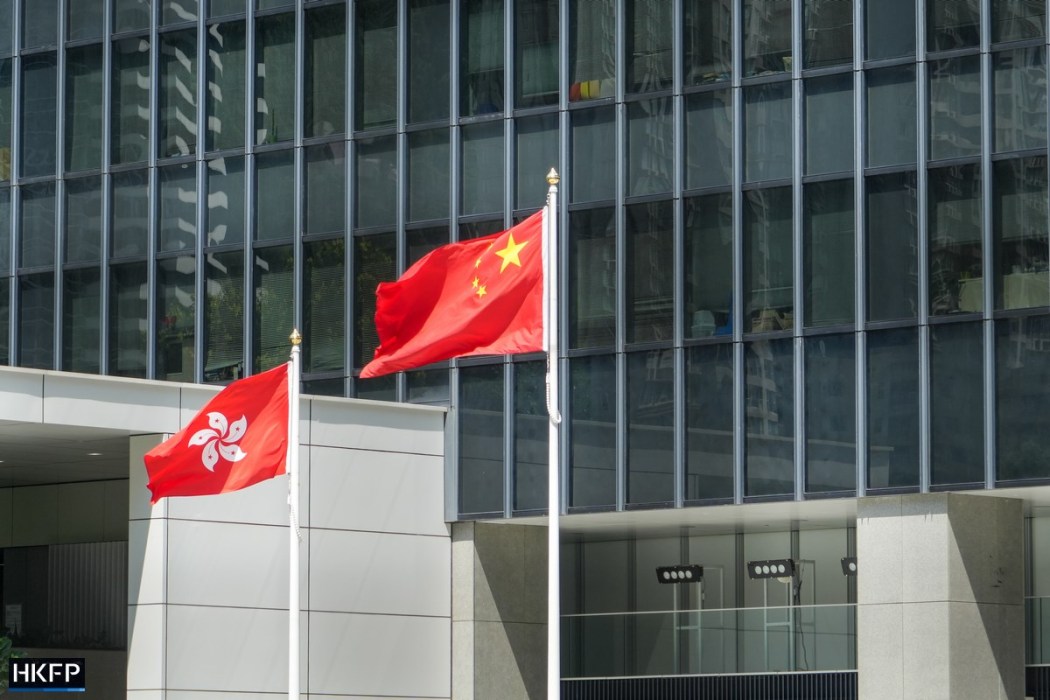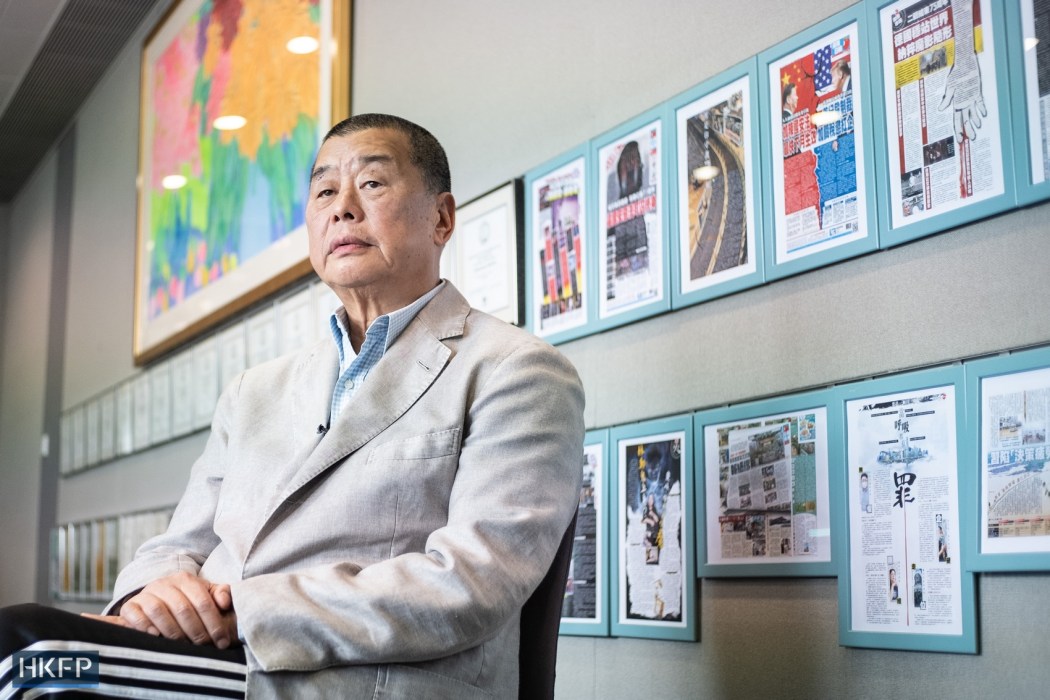The US consul general to Hong Kong “arbitrary twisted” and “intentionally smeared” Beijing’s interpretation of the national security law, the Hong Kong government has said. The comments came after the American diplomat raised concerns over the security law and a recent decision from China’s top decision making body.
Gregory May, US consul general to Hong Kong and Macau, criticised the Standing Committee of the National People’s Congress’ (NPCSC) interpretation of the national security law, which confirmed that the city’s leader and national security committee could decide whether foreign lawyers can take part in national security cases.

The interpretation “could further undermine the independence of Hong Kong’s judiciary system,” May said on Wednesday in a forum organised by the Center for Strategic & International Studies.
The consul general said that the interpretation was a concerning development for the rule of law, and that it expanded “Hong Kong executive branch authority to make decisions affecting cases without judicial oversight.”
“The United States will continue to call on the [People’s Republic of China] to abide by its international obligations and commitments with respect to Hong Kong, to cease its dismantlement of Hong Kong’s democratic institutions, autonomy, the rule of law,” said May.
“We call on mainland and Hong Kong authorities to release immediately and drop all charges against individuals unjustly detained in Hong Kong, and to respect human rights for all.”
The Hong Kong government, in a statement issued late on Thursday afternoon, condemned and objected to May’s criticisms, and said that the interpretation would not harm the independence of Hong Kong courts.
“This legislative interpretation issued by the Standing Committee of the National People’s Congress does not directly deal with an actual legal case, but clarified meanings of relevant legal regulations… the problem of harming the independent judicial power and final adjudication of Hong Kong courts does not exist at all,” the statement read.
The chief executive would not replace the court in resolving other disputes in cases, nor would he be making rulings for courts, the government said.
‘Terrible playbook’
Following May’s speech, the Commissioner’s Office of the Chinese Foreign Ministry in Hong Kong issued a statement on Thursday to “strongly disapprove and deplore” the consul general’s comments.

May “vilified Hong Kong’s rule of law and freedom, showed support for anti-China forces in Hong Kong, and talked down Hong Kong’s development prospect,” which “only exposed his sinister intention of disrupting Hong Kong and containing China,” the statement read.
“We urge the relevant US officials to revisit the lessons of the past and not to be the Aunt Sally. With a terrible playbook at hand, the harder the actors play, the sooner they find themselves humiliated!”
The NPCSC issued a legislative interpretation of the Beijing-imposed security legislation last month, after Chief Executive John Lee invited Beijing to decide whether overseas counsels not qualified to practice in Hong Kong should be allowed to participate in national security cases.
Timeline of debate over admission of Timothy Owen (Click to expand):
- September 30: Senior Counsel Robert Pang revealed in a case management hearing that the Department of Justice (DoJ) and Bar Council opposed Lai’s bid to hire Owen.
- October 19: High Court Judge Jeremy Poon granted an application to admit Owen as Lai’s counsel.
- October 27: Senior Counsel Benjamin Yu filed an appeal against the admission of Owen on behalf of the DoJ to the Court of Appeal.
- November 9: A panel of three judges in the Court of Appeal ruled against the DoJ’s appeal.
- November 15: The DoJ told HKFP that it had filed an application to the Court of Appeal for leave to appeal against Owen’s admission at the Court of Final Appeal.
- November 21: The Court of Appeal rejected the DoJ’s application for leave to appeal, filed by ex-justice secretary Rimsky Yuen.
- November 22: The DoJ files final appeal attempt to the top court.
- November 28, 4 p.m.: The Court of Final Appeal dismissed the DoJ’s application for leave to appeal.
- November 28, 6:45 p.m.: Chief Executive John Lee held a press conference announcing that he would invite Beijing to intervene.
- November 29: The DoJ applied to adjourn the trial.
- December 1: First day of trial against Lai, the Court of First Instance adjourned the case to December 13 as per prosecution’s request.
- December 13: Trial against Lai adjourned again to September 25, 2023.
- December 30: NPCSC passed legislative interpretation on the national security law.
- January 11, 2023: The Committee for Safeguarding National Security held its first meeting following the NPCSC interpretation.
The issue arose after pro-democracy media tycoon Jimmy Lai sought to hire King’s Counsel Timothy Owen to represent him in a now-adjourned trial.
Lai has been accused of two counts of conspiracy to collude with foreign forces and one count of collusion with foreign forces under the Beijing-imposed law. The Apple Daily founder is also facing one charge under a colonial-era law over allegedly seditious publications.
Last October, Hong Kong’s High Court granted an application to admit Owen in the trial despite objection from the city’s Bar Council and secretary for justice.

The Court of Appeal and Court of Final Appeal then rejected three subsequent attempts from the justice secretary to bar Owen from the trial.
Following the decision from the top court in November, Lee invited Beijing to consider issuing an interpretation.
While the NPCSC interpretation did not rule directly on whether foreign lawyers were allowed to take part in national security cases in any form, it confirmed that the chief executive and the Committee for Safeguarding National Security have the power to make the decision.
The national security committee, following the interpretation, held a meeting earlier this month, and urged the government to amend the Legal Practitioners Ordinance “as soon as possible” in order to bar Owen.
The security legislation, enacted in June 2020, also criminalised subversion, secession, and terrorist acts, which were broadly defined to include disruption to transport and other infrastructure.
Support HKFP | Policies & Ethics | Error/typo? | Contact Us | Newsletter | Transparency & Annual Report | Apps
Help safeguard press freedom & keep HKFP free for all readers by supporting our team
























